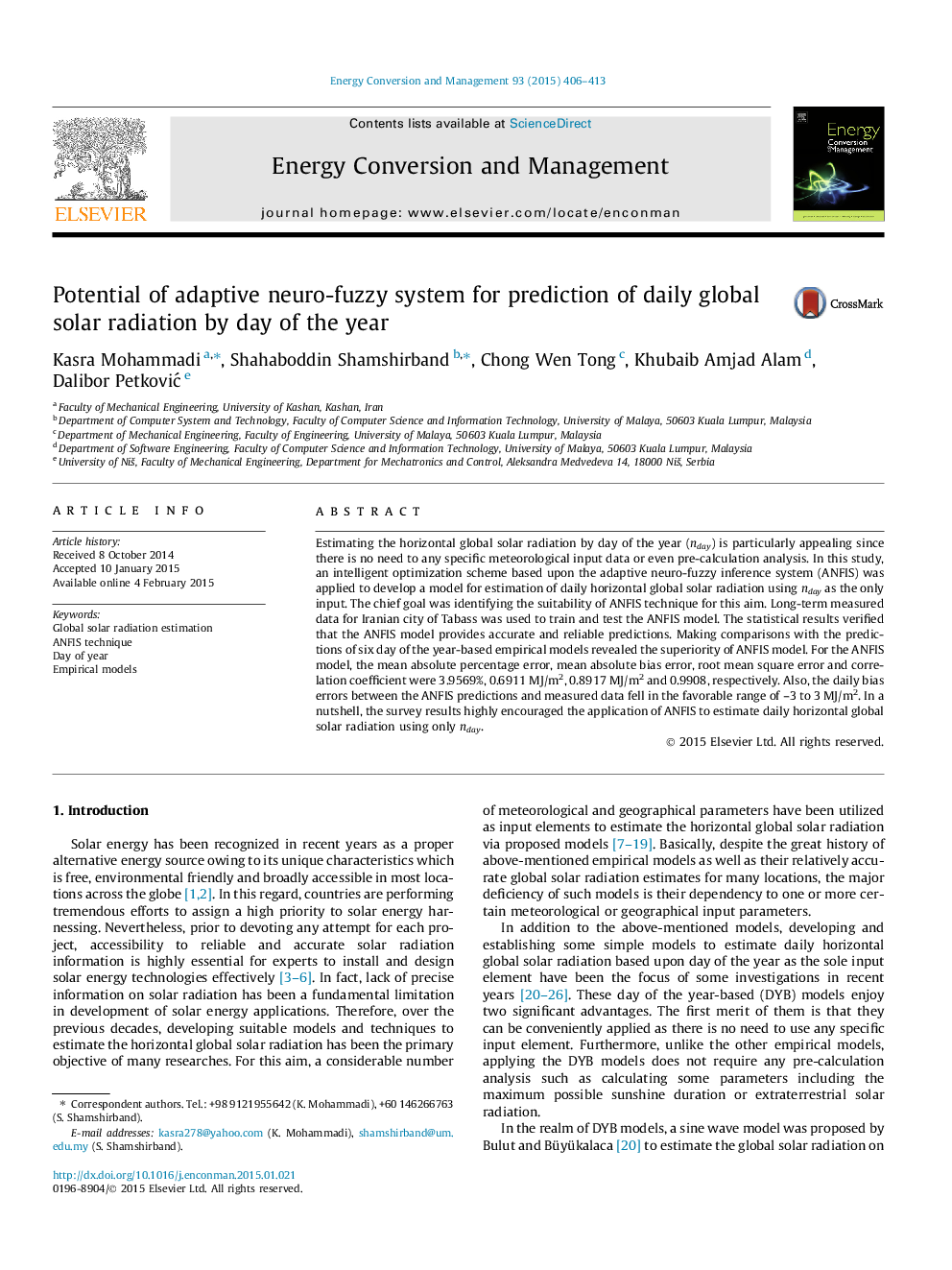| Article ID | Journal | Published Year | Pages | File Type |
|---|---|---|---|---|
| 7162914 | Energy Conversion and Management | 2015 | 8 Pages |
Abstract
Estimating the horizontal global solar radiation by day of the year (nday) is particularly appealing since there is no need to any specific meteorological input data or even pre-calculation analysis. In this study, an intelligent optimization scheme based upon the adaptive neuro-fuzzy inference system (ANFIS) was applied to develop a model for estimation of daily horizontal global solar radiation using nday as the only input. The chief goal was identifying the suitability of ANFIS technique for this aim. Long-term measured data for Iranian city of Tabass was used to train and test the ANFIS model. The statistical results verified that the ANFIS model provides accurate and reliable predictions. Making comparisons with the predictions of six day of the year-based empirical models revealed the superiority of ANFIS model. For the ANFIS model, the mean absolute percentage error, mean absolute bias error, root mean square error and correlation coefficient were 3.9569%, 0.6911Â MJ/m2, 0.8917Â MJ/m2 and 0.9908, respectively. Also, the daily bias errors between the ANFIS predictions and measured data fell in the favorable range of -3 to 3Â MJ/m2. In a nutshell, the survey results highly encouraged the application of ANFIS to estimate daily horizontal global solar radiation using only nday.
Related Topics
Physical Sciences and Engineering
Energy
Energy (General)
Authors
Kasra Mohammadi, Shahaboddin Shamshirband, Chong Wen Tong, Khubaib Amjad Alam, Dalibor PetkoviÄ,
